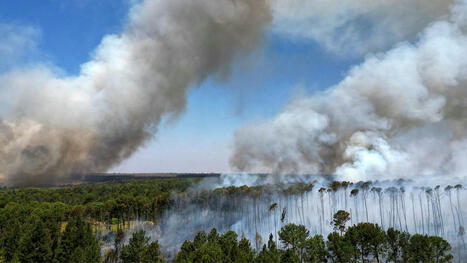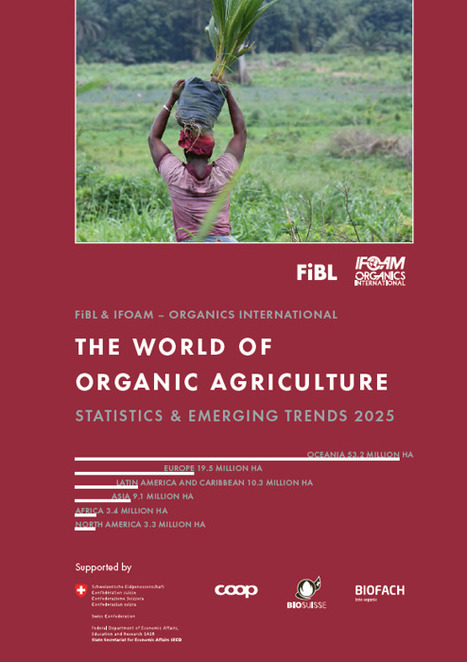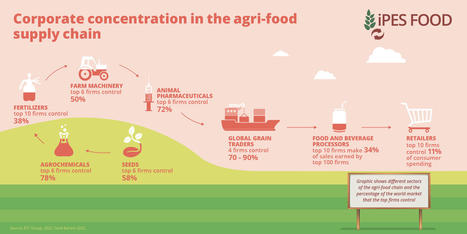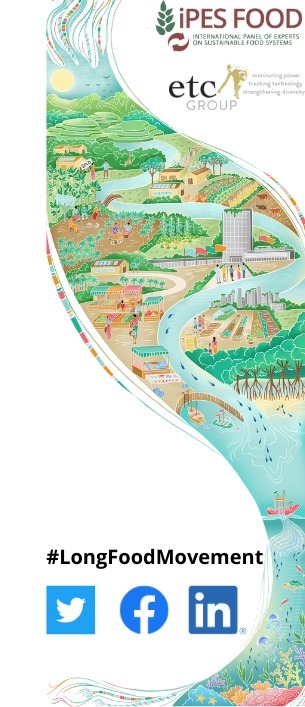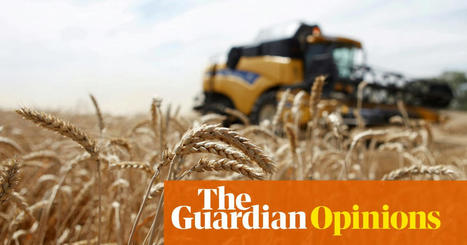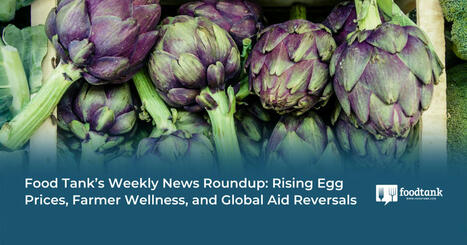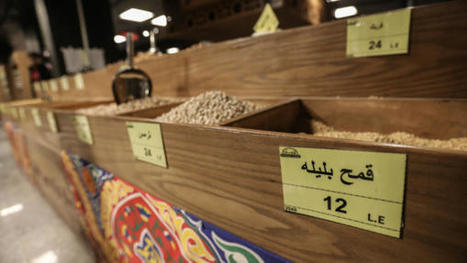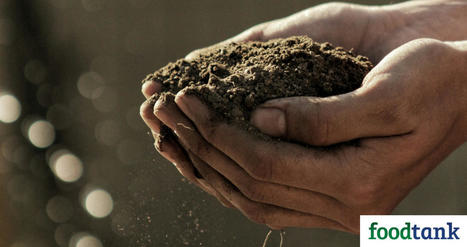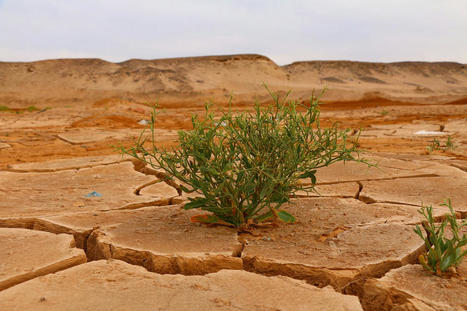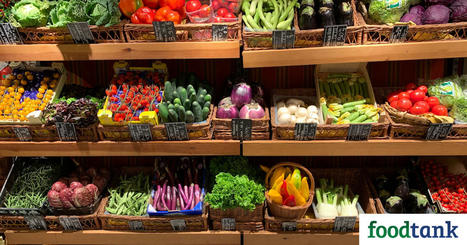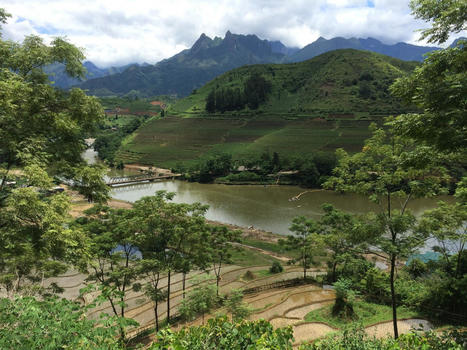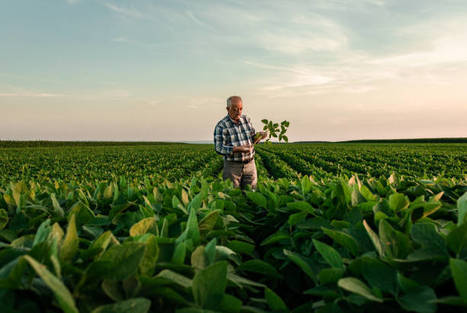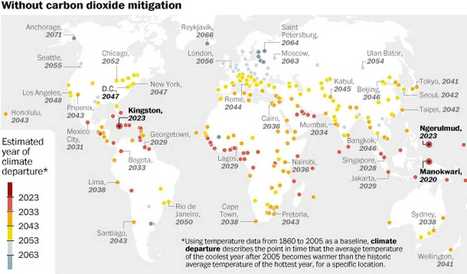 Your new post is loading...
 Your new post is loading...

|
Scooped by
CIHEAM News
Today, 5:04 AM
|
Brazil, set to host the COP30 climate conference later this year, lost the largest area of tropical forest in 2024.

|
Scooped by
CIHEAM News
April 1, 5:11 AM
|
www.fibl.org est le site Internet officiel de l’Institut de recherche de l’agriculture biologique (Suisse, Allemagne, France, Autriche et Europe)

|
Scooped by
CIHEAM News
April 26, 2023 7:23 AM
|
The growing influence of corporations on the governance of food systems, and how to counter it
Who decides what you eat? In the third of our briefing note series on food systems governance, IPES-Food documents a history of growing corporate influence over our food, and proposes transformative solutions to democratize governance to serve the public interest.

|
Scooped by
CIHEAM News
January 3, 2023 10:37 AM
|
Ardi Ardak—which translates to my land, your land in Arabic—is a grassroots national food security initiative working to revive the Lebanese food system through projects that foster agricultural self-sufficiency. The initiative is a collaboration among The Environment and Sustainable Development Unit at the American University of Beirut, the Lebanese League for Women in Business, the Food Heritage Foundation, and Zico House.

|
Scooped by
CIHEAM News
October 3, 2022 11:53 AM
|
The Global Seafood Alliance is ramping up efforts to engage eaters with the launch of its new Best Aquaculture Practices (BAP) consumer-facing website. The site is part of a broader campaign to encourage the consumption of sustainably sourced seafood.

|
Scooped by
CIHEAM News
September 5, 2022 7:27 AM
|
The research opens the way for bioengineering plants to improve their yields One reason for this is climate change, which is causing lower crop yields in places like Africa. However, thanks to a breakthrough by scientists in the United States food crops could soon be made to increase their yields through a simple tweak: by boosting plants’ ability of photosynthesis.

|
Scooped by
CIHEAM News
July 22, 2022 5:24 AM
|
Grain prices have shot through the roof because the war has disrupted harvests and exports from Russia and Ukraine. The two countries together account for a quarter of the world’s wheat, and 80 percent of sunflower oil exports. On top of that, droughts since last year in South America hurt the harvests of soybeans and maize, and the shortfalls increased prices. As if that weren’t bad enough, the exploding prices of fertiliser – Russia is the world’s leading exporter – cut into farmers’ profits. Photo credi - Aljazeera

|
Scooped by
CIHEAM News
June 13, 2022 11:38 AM
|
From vast grain stores stuck in Odesa to famine risk in Yemen, a visual guide to the far-reaching effects of Russia’s block on exports

|
Scooped by
CIHEAM News
April 14, 2022 8:06 AM
|
Major international organizations issued an appeal Wednesday for urgent measures to deal with rising food insecurity in poor countries, including financing to support farmers and increase food supplies.

|
Scooped by
CIHEAM News
June 8, 2021 7:55 AM
|
The International Panel of Experts on Sustainable Food Systems (IPES-Food) has released a new report in collaboration with the ETC Group: 'A Long Food Movement: Transforming Food Systems by 2045'. We map out two very different futures for food systems, people and the planet. First, what do the next 25 years have in store under “agribusiness-as-usual”? The keys of the food system are handed over to data platforms, private equity firms, and e-commerce giants, putting the food security of billions at the mercy of high-risk, AI-controlled farming systems, and accelerating environmental breakdown.

|
Scooped by
CIHEAM News
January 30, 2021 10:02 AM
|
Over the last year, Covid-19 has undone the economic, health and food security of millions, pushing as many as 150 million people into extreme poverty. While the health and economic impacts of the pandemic have been devastating, the rise in hunger has been one of its most tangible symptoms.

|
Scooped by
CIHEAM News
May 23, 2017 4:26 AM
|
World production is forecast to fall 14 per cent, with Italian output expected to almost halve in the 12 months to September, according to the International Olive Council. Greece is likely to see a 20 per cent fall, Tunisia by 17 per cent, while production in Spain, known in the industry as the Saudi Arabia of olive oil because of the size of its output, predicted to decline 7 per cent.
|

|
Scooped by
CIHEAM News
April 22, 4:20 AM
|
From price-fixing probes to farmer stress and climate politics, this roundup has the week’s essential food stories.

|
Scooped by
CIHEAM News
November 13, 2023 3:20 AM
|
Climate change is impacting everything from the sex and size of animals to the state of wine and coffee crops. It’s also making flights a lot bumpier.

|
Scooped by
CIHEAM News
January 7, 2023 8:18 AM
|
World food prices reached a record high in 2022, surging after Russia's invasion of Ukraine. World food prices eased in December marking the ninth consecutive monthly fall, but gained more than 14% in 2022 compared to the previous year, to reach the highest since records began, the U.N. food agency said on Friday.

|
Scooped by
CIHEAM News
October 21, 2022 9:52 AM
|
WWF reports that a food systems approach is necessary to address biodiversity loss and limit global warming to 1.5°C above pre-industrial levels.

|
Scooped by
CIHEAM News
September 22, 2022 7:17 AM
|
If global temperatures rise beyond 1.5°C above pre-industrial levels, the planet will begin to undergo as many as 16 tipping points. Worse: many of those tipping points are already a risk, whose likelihoods will increase with each tenth of a degree of further warming.

|
Scooped by
CIHEAM News
August 5, 2022 4:35 AM
|
As we consider the future of world food security, active global cooperation will be necessary to prevent widespread hunger and starvation.

|
Scooped by
CIHEAM News
July 17, 2022 11:14 AM
|
Rising global temperatures are posing a threat not only to people and wildlife but plants as well. The question of why many plants succumb as the heat increases is now better understood, thanks to a team of scientists who have identified the mechanism in plant cells that regulates their immunity.
It has long been known that increased temperatures compromises plants’ ability to make a defense hormone called salicylic acid, which boosts their immune system against invaders. However, how this defense mechanism works at the molecular level wasn’t well understood.

|
Scooped by
CIHEAM News
May 19, 2022 5:10 AM
|
Freshwater scarcity is a fact of life for people across much of the planet with agricultural production severely affected as irrigation at croplands already accounts for 70% of water use globally.
Much worse is to come, however, scientists warn. By the middle of the century, say the authors of a new study, water scarcity in agriculture will likely increase in a staggering 80% of the world’s croplands.

|
Scooped by
CIHEAM News
October 19, 2021 11:26 AM
|
A WLE-hosted webinar series discussing the critically important role of research and innovation to secure more inclusive, sustainable and resilient futures.

|
Scooped by
CIHEAM News
June 2, 2021 5:06 AM
|
A new report from the United Nations’ Intergovernmental Panel on Climate Change (IPCC) says some of the causes of climate change may also be altering the nutritional composition of food.
Climate affects a range of biological processes, including the metabolic rate in plants and ectothermic animals,” the IPCC report said.

|
Scooped by
CIHEAM News
May 30, 2017 3:25 PM
|
Climate scientists sometimes talk about something called "climate departure" as a way of measuring when climate change has really changed things. It's the moment when average temperatures, either in a specific location or worldwide, become so impacted by climate change that the old climate is left behind. It's a sort of tipping point. And a lot of cities are scheduled to hit one very soon.
|
 Your new post is loading...
Your new post is loading...
 Your new post is loading...
Your new post is loading...




